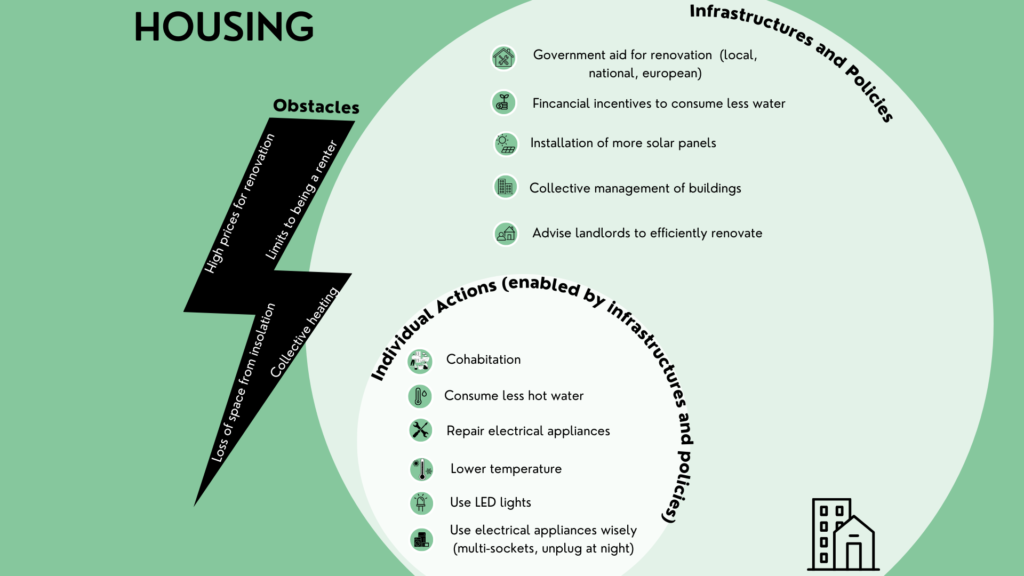By: Valentin Ract, Académie Notre Europe facilitator

In France, 17% of French territorial emissions, or 79 Mt CO2eq, are attributable to the building sector. A reflection was thus conducted with the participants of the Académie Notre Europe around the reduction of emissions in this area, a discussion that was very rich.
What can I do to reduce my footprint in this area?
Several ideas were brought up, ranging from simple eco-friendly gestures (reducing hot water consumption, using a hot water bottle, lowering the temperature at home, wearing sweaters) to more ambitious initiatives such as the complete renovation of homes and investing in heat pumps.
What holds me back? (Obstacles)
However, several obstacles were identified, in particular for the renovation or acquisition of a heat pump for one’s home; not being a homeowner restricts the types of decisions one can take and might hinder renovation work. There were also obstacles related to the structure of the building itself, such as the collective floor heating system, where the tenant does not have control over the temperature. The financial aspect was also a major obstacle mentioned: as the costs of such investments can be high, and information about state aid is not always clear, there is a concern regarding having to advance the costs. Finally, there were also discussions around obstacles related to losing comfort in daily situations.
What could help me change?
In order to overcome these obstacles, we advocate increasing, simplifying and better communicating the state aid for the renovation of one’s home or the acquisition of a heat pump. A common policy at the European Union level could make it possible to homogenize the aid of Member States and to reach ambitious objectives in terms of energy renovation. (1) Also, a financial incentive could create a context favorable to the reduction of energy consumption.
Finally, the two chosen policies were:
A progressive tax on rent collected by landlords who own two or more apartments, which would finance efficient renovation of public housing and less wealthy households.
Mandatory insulation standards, solar panels on roofs, and the widespread use of recycled materials for new housing.
And the two chosen communication strategies were :
The implementation of advertisements aiming to highlight energy renovation subsidies and the financial benefits of reducing electricity consumption.
Community workshops and trainings for journalists on these topics.
This discussion was very enriching, and the young people were very involved and innovative.
(1) Sidenote: “in 2020 the Commission published the strategy “A Renovation Wave for Europe – Greening our buildings, creating jobs, improving lives” to boost renovation in the EU.

